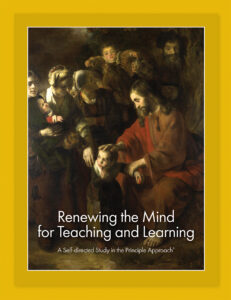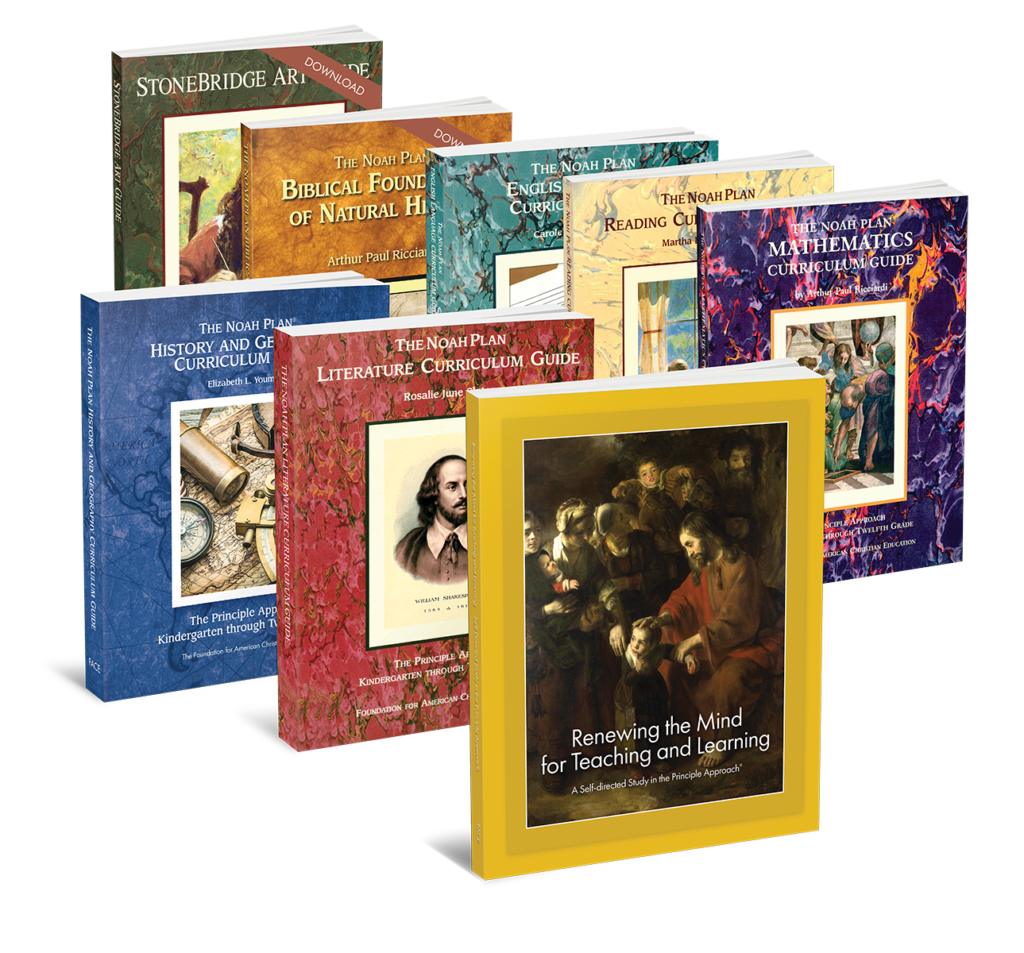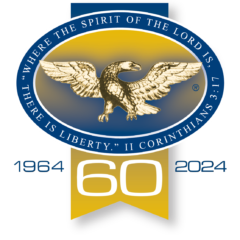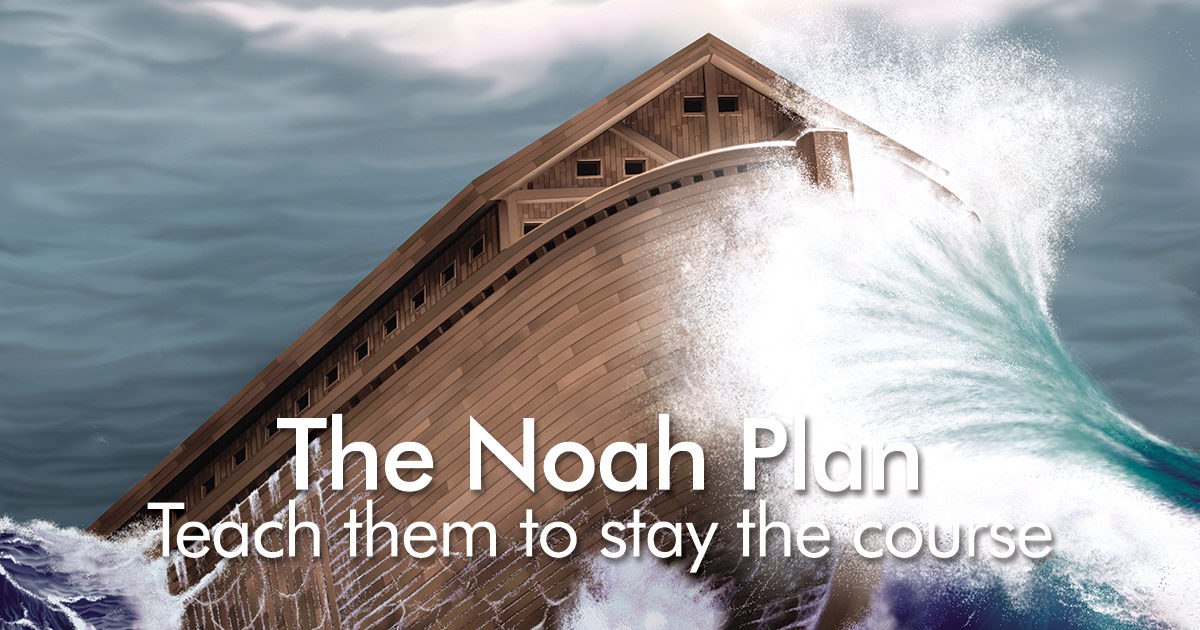One of the best promises of the Scripture is “I will make all things new . . .” It is a promise with limitless potential. Notice the qualifier, “all.” It means that no matter who you are, how much you know or don’t know, where your children are in the process of education, what church you attend, or where you live, your desire to educate yourself and your children in the Principle Approach® qualifies you for embarking upon the world of new potential found only in the Kingdom of Christ!
The first thing you must consider is that this is a process of education opposite to all worldly education. It begins with, and depends upon, the Word of God in every subject. Therefore, if you know and love the Bible, you are half-way there. If you love the Bible but are just learning to know it – that’s okay too!
Either way, you will be a Principle Approach student along with your children – “the pupil is not above his teacher…” (Luke 6:40) You must be at peace with this and welcome the Holy Spirit to be your teacher without pressure, stress, or condemnation. You will do this by setting priorities and being patient with yourself and your children.
Of course, academic degrees are extremely helpful to any teacher but only as far as they reflect a program of study that honors truth and the authority of the Bible in all of life.
So let’s get started!

Renewing The Mind for Teaching and Learning: If you’re just beginning in the Principle Approach, first find the book titled Renewing The Mind for Teaching and Learning. This is your starting block.
This book is a condensed version of a Principle Approach teacher training program. It covers all the bases without the depth. It will give you an overview of what is to come. The Principle Approach always begins with an overview. We cannot master a subject without knowing and understanding the context of the subject — historically and practical— its history and its boundaries. The overview is the first of all Principle Approach methods.
- Read the book through, marking it for future reference and making it your own.
- Set aside time over several weeks to re-read this book doing the additional study recommended in each chapter. This will flesh out the internalization of your Principle Approach overview and equip you to move forward with teaching and learning.
- You will use the “red” books, the “blue” book, and the 1828 Dictionary for your additional study. Be patient with yourself. Do what you can do with your present interest level and time available. There will be further opportunities to study. Some people would rather do this study in the context of lesson preparation and that’s okay.
The next steps of preparing to use the Noah Plan Program are up to you.
If you have time, we suggest that you take advantage of the on-line courses at FACE.net in the Principle Approach. These courses build upon Renewing The Mind: “Foundations in the Principle Approach,” “The Seven Principles,” and “Mastering Providential History.” Each course has seven to nine segments of 30 minutes each, additional readings and study, and result in the development of a notebook that will be valuable in your teaching. Contact Max Lyons, Director of Teaching Services at FACE.

If you are pressed for time because of teaching demands, go right to The Noah Plan Lessons Books.
You will find that The Noah Plan coordinates the use of seven Noah Plan subject curriculum guides: (1) History & Geography, (2) English Language, (3)Literature,(4) Mathematics, (5) Art, (6) Natural History or Science, and (7) Reading. The seven NP Curriculum Guides contain the content of the lessons in each subject while the NP Lessons Books give the week-to-week lesson plans. You will use the Guides and Lessons together as you teach.
This may seem overwhelming as each of the curriculum guides is twelve years’ worth of teaching and learning — you will use them from kindergarten through high school! So relax… keep them handy and pull from them as you need access for lessons weekly.
Now let’s look at your Noah Plan Lessons Book
Spend some time in your selected lesson book. As you look through it, remember this: You are the governor of your student’s education. Your first requirement is to prioritize and select what you will teach, not to cram it ALL in. In fact, doing it ALL is counter-productive.
In the Principle Approach, it is the depth of learning – the internal impact of the subject upon the heart and character of the child that is the goal. This cannot be rushed or systemized.
Success is a day-by-day, moment-by-moment, personal flexibility that meets the need of the individual student. The goal is NOT to complete the book. The goal is to impact the heart and the mind. The method of education that accomplishes this is leisurely (the Greek root of “scholar”is “leisure”), steadfast, based upon genuine inquiry, student productivity, and inspires a love of learning. Nothing squelches the goal more than rush and pressure, and NOTHING is more boring than force-feeding facts at a hurried pace that by-passes the heart, the imagination, the spirit, and the soul.
To prioritize:
- Decide what subject you will begin with. It’s okay to do just one until you learn the method and feel confident in moving into another.
- Decide how much time you will devote to this subject daily. As you look at the Lesson Book you will see that the lessons are comprehensive, requiring writing, speaking, discussion, notebook work, research, etc. This is where the depth of the Principle Approach is reached. Lessons are true milestones of learning, not just information to be consumed.
After prioritizing, you will then choose the lessons you will teach and begin your preparation by thinking them through yourself. Set up your own notebook with a section for your study of the Principle Approach, a section for the subject you will teach, and a section for your personal word studies.
Books, books, everywhere. What to do with all these books?
This break-away from education-as-force-feeding (memorizing facts, taking the test), sets at liberty the learning experience to tackle the subjects unfettered by a mechanized system allowing the student to take dominion of the whole subject, master its principles, pursue its riches, and articulate it originally and personally. In other words – to acquire a love of learning.
This is important: Understand that the curriculum suggested by The Noah Plan is extremely flexible and adaptable. Changes in the curriculum that preserve the purpose and effect proposed by the Noah Plan can be made. However, it is the methodology that must be mastered, and then practiced faithfully, through an individualized curriculum
This is why a paradigm-shift is the first, vital step for the teacher when beginning the Principle Approach. This is why we begin with Renewing the Mind for Teaching and Learning and the on-line courses in the Principle Approach for the teacher, building the teacher first so that the teacher is freed to actually teach, not just facilitate. Otherwise the effort is futile. A Principle Approach curriculum without the practice of the Principle Approach method will frustrate both the teacher and the student and often produce the opposite of the desired result—balkiness, fatigue, frustration, and defeat.
Therefore, the many other books suggested by The Noah Plan — The Literature Teacher guides, the Writing Road to Reading (not available at FACE.net), Classic Grammar, and the Bible as Reader Program, all support the individualized priorities and plan as needed.
Know your goal: We find that this freedom is sometimes daunting and intimidating to new teachers. (By the way, just as every parent is naturally a teacher, you are a teacher whether your classroom is in a colony of classrooms or at home.) Freedom means responsibility — accountability for choosing well, stewardship of the outcome of those choices by obtaining the needed tools and the requisite study, and perseverance to achieve the goal. If you are careful to plan well and realistically (according to your individual reality), you will not overload, overextend, and overtax yourself or your student. You will learn to love learning, exercise the appropriate method to plumb the treasures in the subject areas and in the scripture, and take the higher road of character-building, conscience-cultivating, and purpose-defining education.
For instance, if you are in second grade as a beginning Principle Approach teacher, and you have made the paradigm-shift by mastering the methodology yourself, you will look at the second grade overviews and decide which “courses” (literary classics, science topics, history studies, etc.) you will set in place for your students. Specific classics, topics, and studies can be adapted as long as the methodology is thoroughly practiced, the skills are mastered, and the result is the student’s articulation of the subjects. Principle Approach methodology is introduced in Renewing the Mind for Teaching and Learning; the methodology is further developed and demonstrated in the on-line course “Foundations of the Principle Approach.”
We have suggested an appropriate track for second grade. You will select from the suggested classics, topics, and studies to furnish your particular curriculum. You are unique, your students are unique, and your uniqueness is the gift of God. Honor it. Your base for planning your curriculum is your individual purpose.
Wise word: If I could sit with you and look you in the eyes and give you one word of advice that would serve you best, I would say: “Relax.” The meaning in Greek of “scholar” is “leisure”. The pace that supports true learning is leisurely because thinking requires time; to protect that “leisure” you must be selective in setting goals. The greater goals are character, conscience, skills, and purposefulness, not completing the chart or finishing the book.
Thank you for your interest in The Noah Plan. We look forward to working with you as you learn more about the Principle Approach. Please contact Max Lyons, Director of Teaching Services for questions and help getting started.
To learn more about the Noah Plan curriculum and for special savings click here.

